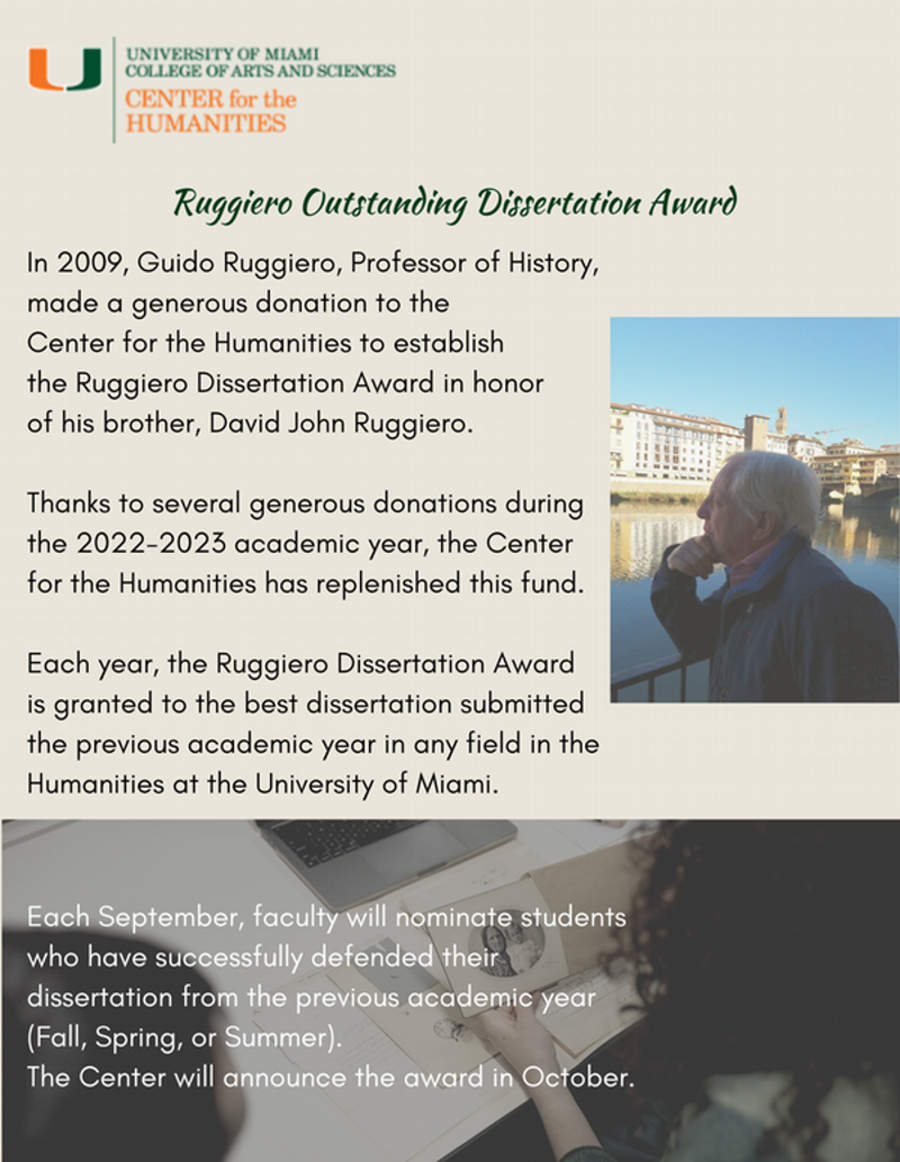
Dieyun Song (Department of History)
"The Power of Philanthropy: Development, Empire, and Non-State Actors in Cold War Colombia, 1961-1973"
This dissertation by Dieyun Song is an extremely impressive piece of work. She has carried out extensive archival research in the U.S. and Colombia to collect the evidence for a convincing, innovative argument about the importance (and the limits) of “soft power” in the development of U.S. dominance in Colombia, and Latin America more generally, during the Cold War years. In four excellent chapters, Song explores how U.S.-based philanthropic organizations, notably the Ford and Rockefeller Foundations and the Population Council, collaborated with U.S. government initiatives to exert soft power and influence development policies in Latin America, especially in the areas of education and public health. By funding development initiatives aligned with U.S. modernization theories and anti-communist objectives, philanthropic organizations facilitated the cultural and ideological influence of the U.S. in Colombia, an experimental site for testing an approach that promoted the diffusion of American values and practices in a manner that appeared neutral and benevolent, masking the underlying imperialistic motivations.
Crucially, Song shows that soft power worked in Colombia by recruiting local beneficiaries who then exerted their own influence on the ground to produce local and national institutions—some of which continue to be influential in Colombia today—that often did not match the plans of U.S.-based leaders and funders, most of whom had limited local knowledge of Colombian society and culture. Through a series of close readings of Ford Foundation and Rockefeller Foundation archival documents, Song shows that U.S. imperial power operated in multifaceted, sometimes contradictory ways, beyond direct political or military coercion, channeled and transformed from the bottom up. Her dissertation positions philanthropic organizations as cultural and ideological influence instruments, operating in the intermediary space between state policy and civil society. Power is not merely about overt domination but the subtle and pervasive influence that reshapes societies through cultural, intellectual, and institutional means. By analyzing philanthropy as a form of soft power embedded within broader Cold War strategies, “The Power of Philanthropy” contributes to a deeper understanding of how non-state actors played pivotal roles in U.S. empire-building in the twentieth century.





